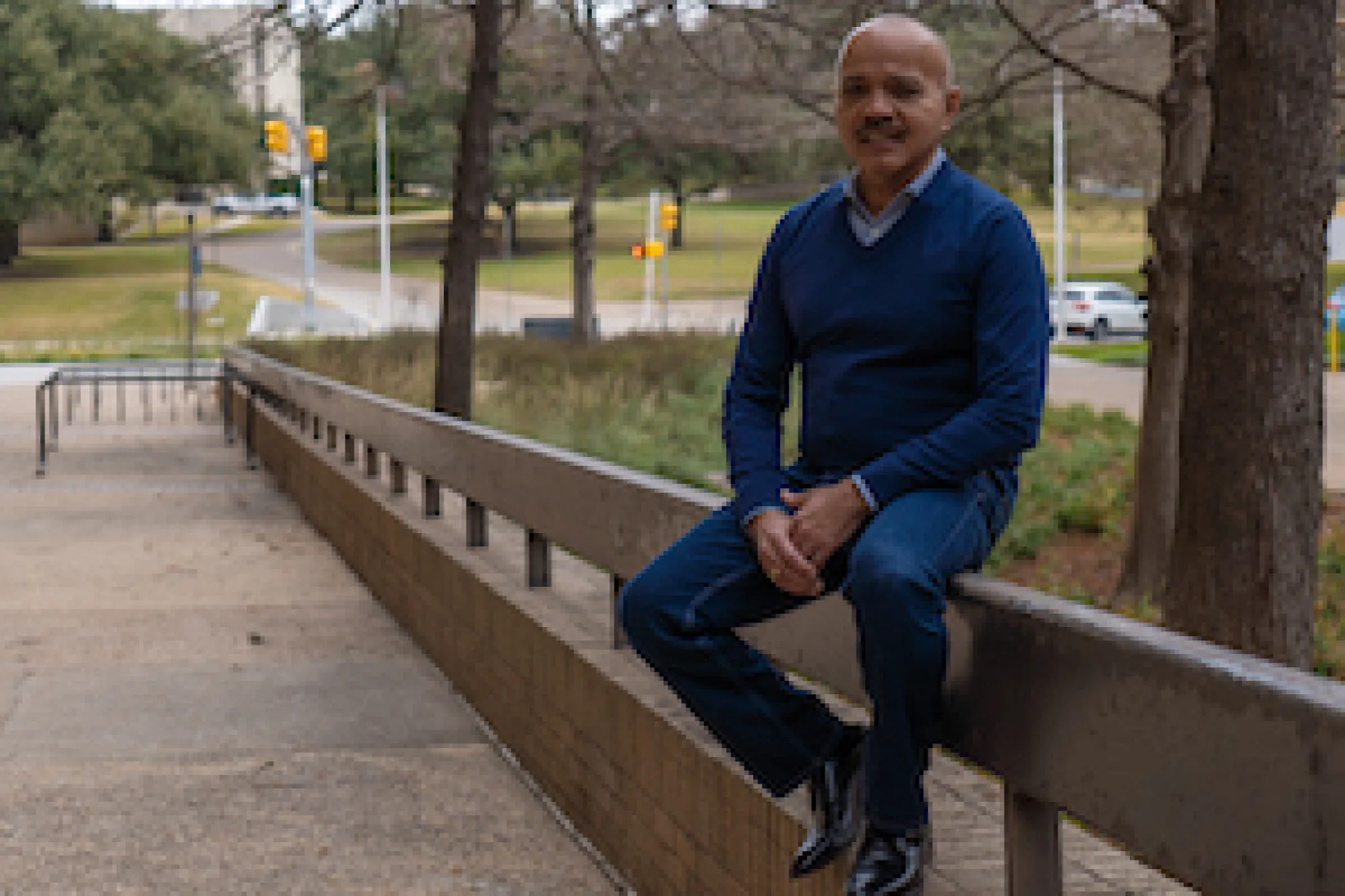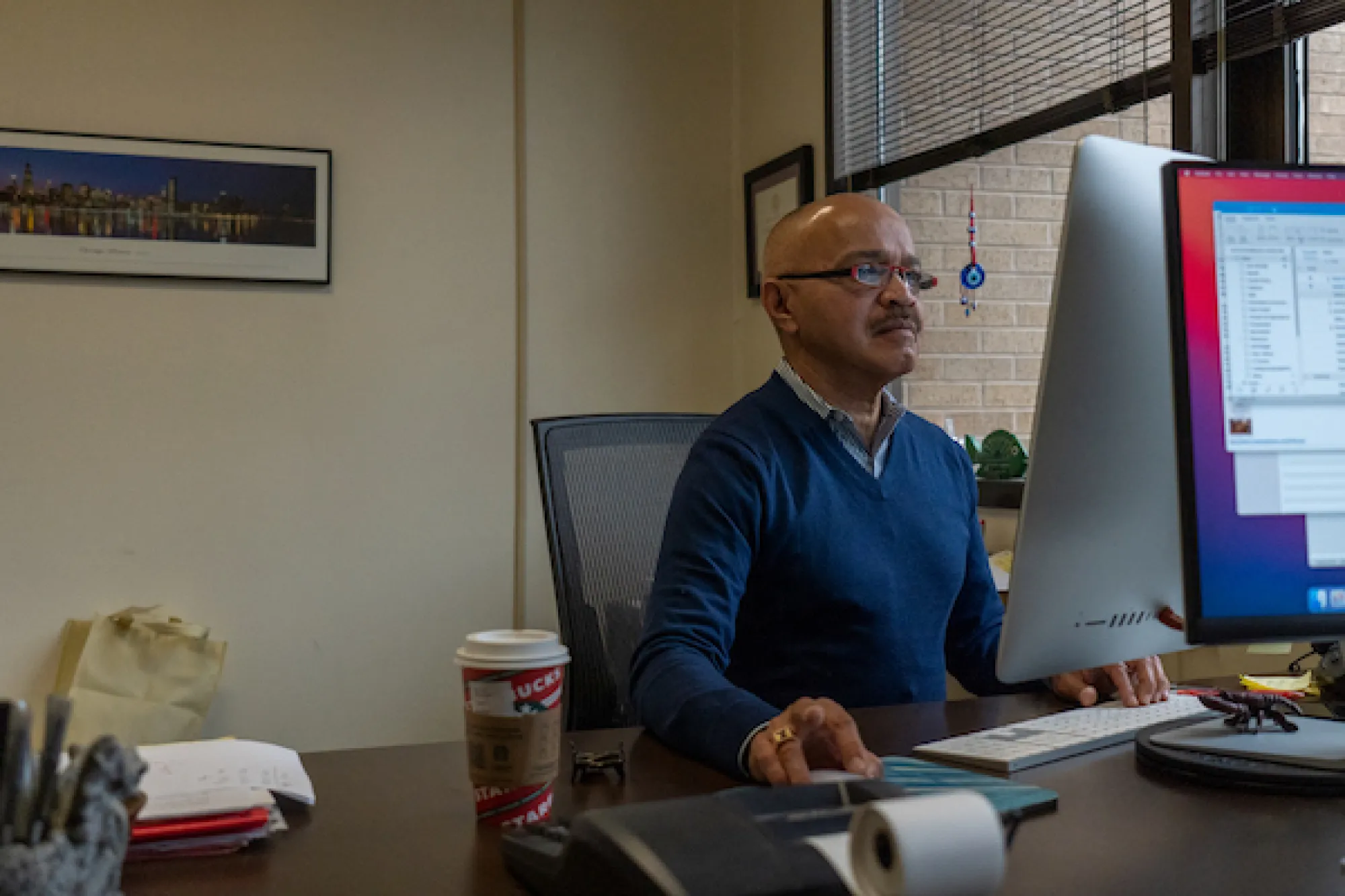June 27, 2022
The Butler School said goodbye to its Finance Manager Tony Zapata this year. We sat down with him before he left to reflect on his extraordinary career with the school as well as his plans for retirement.
1. For someone unfamiliar with the work you do, can you explain a bit about the significance of your role as finance manager? Why is money and budget management important for a music school?
In my role as Finance Manager, I have various duties, but there are two important duties that I take very seriously. One, to ensure the Butler School adheres to the University’s accounting and purchasing guidelines; and, two, as the custodian of school funds, to ensure they’re used for their budgeted or intended purposes. For example, if a donor gifts the Butler School money to support the purchase of a new piano or student travel, I ensure that money is used in the manner stipulated by the donor. Budgeting and funds management are also highly important to me. We need to be fiscally responsible in order to meet our goals.
2. What are some of the most significant ways the Butler School has changed since you started working here?
One significant change is technology. When I started with the Butler School in 1982, no one had computers. We all used IBM Selectric typewriters, Correcto strips, and lots of liquid paper; E-mail and voice mail were nonexistent. We purchased our first computers for staff in the mid-to-late 1980s. If you wanted to share news with staff and faculty, one had to type a memorandum, make photocopies, and distribute the photocopies into staff and faculty mailboxes. To assign a new employee, one had to type an eight-part employment form. As the form routed through the various approval channels, a file copy of the form was separated and retained by each approver before routing to the next approver. Payroll was also processed on paper vouchers and forwarded to the Payroll Division for processing. Remember carbon paper? It was a mess! It’s amazing how technology has facilitated our many procedures.
Another significant change was the growth of our endowments. Our State and fee accounts have been subjected to mandated budgetary reductions several times over the years. Because of these reductions, there has been an increased need to rely on endowments and local funds. Fortunately, the Butler School received three large endowments that have helped tremendously and lessened the impact of budget reductions. Our concert proceeds have also increased over the years and have helped the Butler School during budget shortfalls. And it’s all thanks to our staff who work tirelessly to make these events successful!

3. Can you remember the most stressful time you experienced at the Butler School? Do you remember what caused it and how you dealt with it?
The recent pandemic certainly contributed to the stress level increase at the School. We were dealt with a lot of unknowns. The School undertook multiple measures to equip faculty, staff, and students with the necessary tools to facilitate virtual instruction. One significant measure was the purchase and distribution of computer equipment like laptops and webcams to faculty and teaching assistants. For group class piano instruction, I coordinated the purchase and distribution of over 100 keyboards and microphones to students. Funding for these items resulted in budget maneuvering. Fortunately, the Provost Office graciously provided funds to help University units transition to virtual instruction.
4. Being a finance whiz, you could have chosen to work in a lot of different places, or in the private sector. What made you want to stay at the Butler School for so long?
I did work a few years in the private sector; I worked in retail for a couple of years. While with a major retailer, I was being recommended to a management trainee program. However, a friend advised me to consider UT Austin. The thought of working for the University and having free weekends definitely interested me. I applied and landed an accounting clerk position with the Butler School. My time here also involved working as graduate coordinator, a job I thoroughly enjoyed as well. After a few years in the position, I thought it was time to get back into the finance world.
I also had employment with other campus units. I worked at the Extension Instruction Center and the Budget Office. However, the music school was always a special place. I developed close friendships with faculty and staff. And, what other place on campus can one get serenaded by a group of trombonists or trumpeters rehearsing next door to my office? This was the place I wanted to be. I’ve always felt welcomed and appreciated by everyone.
5. What was your favorite part of the job? Least favorite?
My favorite part of the job has always been assisting faculty, staff, and especially students. I try not to think in terms of least favorite job duties. If you do, it makes the job unpleasant. With that said, if I had to name a least favorite job, the clear winner is the preparation our annual Higher Education Arts Data Survey. I spend about 2-3 months reviewing the School’s total annual expenditures and calculating expense and income estimates for the report. I compare it to a pesky gnat that will not go away.
6. What will you miss most about working here?
I will miss the people. We have incredibly talented faculty, staff, and students. I am honored to have been a part of this hardworking and dedicated group. I will miss the many office chats and laughs. I will miss watching the seasonal changes through my office window and also seeing all the day-to-day outdoor activity. I will also miss listening to the tower carillon on my daily walks to the gym.
7. I’ve been told you’re an avid runner, and that you used to go for runs on your lunch break pre-pandemic. Is that true? When did you get into running and do you have plans to continue or enhance your running habits after retirement? Any other fun retirement plans?
Yes, this is true. I did all my workouts during the noon hour. The rain and cold would not stop me. I began my membership with the University’s Recreational Sports program in 1987. My first class was a power walking class. I later enrolled in aerobics, step, and weight training classes. I even had a one-year stint as a recreational sports instructor; I taught step and weight training to staff and faculty. In 2007, I joined a local running group. I knew I had talent for running. As a high school freshman with no training, I was clocked at 5:20 on a one-mile run. A few years ago, I placed third in my age group at the Congress Mile. I was timed at 5:25, just five seconds slower than my time as a 15-year-old high school freshman. Not bad for an old man. As of today, I have participated in six marathons, including the grandfather of all marathons—the Boston Marathon, 14 half-marathons, and numerous 5Ks and 10Ks. After retirement, I plan to continue running. Exercise has always been a part of my life.
Regarding travel, I love to travel. I have several U.S. and international destinations in mind after retirement. I also have a few out-of-state friends I hope to visit more often.
8. How do you get your morning coffee?
Can you believe I never drank coffee until about 20 years ago? For many years, I drank hot tea in the mornings. The opening and expansion of coffeehouses changed all that. Before work, I would stop at locally-owned coffeehouses near campus to pick up coffee. Sadly, those locally-owned coffeehouses have now closed. My daily coffee of choice is a triple shot no whip soy mocha latte from Starbucks. I know people who visited my office would routinely see a Starbucks cup on my desk. I enjoy the staff at my neighborhood Starbucks. Most of the baristas know me on a first-name basis.


